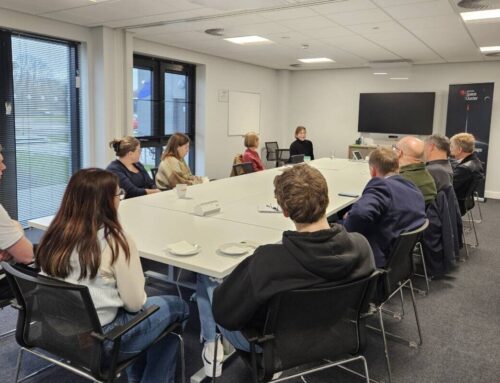 This month saw the publication of the first Buckinghamshire Local Skills Report. Produced on behalf of the Buckinghamshire Skills Advisory Panel, the report is based on the latest labour market and skills evidence. So, what does the evidence say, and what therefore are Buckinghamshire’s skills priorities?
This month saw the publication of the first Buckinghamshire Local Skills Report. Produced on behalf of the Buckinghamshire Skills Advisory Panel, the report is based on the latest labour market and skills evidence. So, what does the evidence say, and what therefore are Buckinghamshire’s skills priorities?
At a very broad level, the first key finding is that prior to the Covid-19 pandemic, Buckinghamshire employers were struggling to fill vacancies. This was in part a skills issue, with 28% of employers reporting recruitment difficulties due to a lack of applicants with the required skills, higher than the national average of 25%[1]. However, it was also a labour market mismatch issue, with 25% of Buckinghamshire employers reporting ‘not enough people interested in the role’, compared to only 12% nationally. Local intelligence suggests the latter to be a particular problem for the county’s health and social care, construction and manufacturing sectors.
Proximity to the London job market, the high cost of housing, the perceived lack of vibrancy of Buckinghamshire’s urban centres, a smaller than average cohort of young people taking-up apprenticeships and perceptions of certain sectors are all likely to contribute to the recruitment challenges of local employers. This may change in the short term as more people seek work as a result of Covid-19 related job losses, long-term however the mismatch is likely to require both demand and supply side interventions.
The evidence shows that young people have been particularly hard-hit by the Covid-19 pandemic. They are more likely to have been furloughed and have experienced the largest rises in unemployment. Many young people in education have been unable to undertake work inspiration activity, whilst the number of Buckinghamshire-based apprenticeship and internship opportunities were estimated to be 45% lower in 2020 than in 2019[2]. The reduction in real world opportunities is likely to impact the ‘work readiness’ of young people as they enter a competitive job market and is likely to make it more difficult for them to make informed career decisions.
Looking forward, there are optimistic signs for job seekers and the local economy. The evidence suggests that the construction; creative; life sciences, health and social care; space and high performing engineering sectors will create a significant number of jobs in the local area over the next 10 years.
A key skills issue for the county (and indeed globally) moving forward is the need to raise digital skills across the board. In 2019, a third of Buckinghamshire employers struggling to recruit people with the required skills said that applicants lacked the required digital skills[3]. Covid-19 has accelerated the need for individuals to raise their digital skills (be that within current roles or to access new employment opportunities) and for employers (particularly SMEs) to adopt new technology. Strong pipelines of individuals with cutting edge digital and technical skills are also vital for the future competitiveness of Buckinghamshire’s growth sectors.
The Buckinghamshire Local Skills Report includes a Skills Action Plan which sets out a wide range of initiatives happening, or planned, across the county to address these and other issues highlighted within the report. The report and evidence base are available to download here: www.buckslep.co.uk/our-strategies/buckinghamshire-local-skills-report/
[1] Source: Employer Skills Survey, DfE, 2019
[2] Source: Labour Insight, Burning Glass Technologies, 2021
[3] Source: Employer Skills Survey, DfE, 2019









